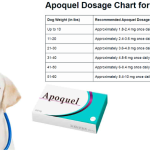As a pet owner, you have to make sure that your furry companion receives the necessary medical care. However, it’s no surprise that veterinary bills can uncertainly rise due to which many owners start searching for ways to manage costs. While managing allergies in dogs, Cytopoint injections can provide effective itch relief for dogs suffering from canine atopic dermatitis. But what is the cost of Cytopoint injection for dogs, and how can you ensure this treatment option remains affordable? Let’s explore the options.
Key Takeaways:
- Cytopoint injections can be an effective treatment option for dogs with allergies.
- The cost of these injections can vary based on several factors, including the size of the dog and the required dosage.
- Pet owners can explore options to manage the cost of Cytopoint injections, including seeking financial assistance and considering alternative treatment options.
Understanding Cytopoint for Dogs
Cytopoint is one of the best treatments for dogs suffering from allergies, transforming their life in a way that provides them the comfort they deserve. It mainly deals with canine atopic dermatitis. Imagine a powerful monoclonal antibody treatment that purposefully destroys the main protein responsible for causing allergic problems. That treatment is Cytopoint.
Cytopoint is administered to dogs through injection, and the effect of one injection lasts for up to 4 to 8 weeks. The long-lasting effect makes it more convenient and effective in contrast to traditional allergy medications that require more frequent dosing and cause unwanted side effects.
To learn How Long Does It Takes for Cytopoint to Work, follow this link…
How does Cytopoint work?
Cytopoint specifically targets and neutralizes the protein IL-31, which plays a vital role in the itch-scratch cycle associated with canine atopic dermatitis. By neutralizing IL-31, Cytopoint can provide long-lasting relief from itching and scratching in affected dogs.
Most of the traditional allergy medications treat symptoms rather than the underlying cause, But Cytopoint purposefully targets the root cause of the allergic reaction. This working mechanism makes Cytopoint an effective and long-lasting treatment option.
Cytopoint is the most effective alternative in relieving allergic problems in dogs. It offers fewer side effects with a higher level of safety.
Veterinary Dermatology and Cytopoint
A qualified veterinary dermatologist who suggests the best during your journey of managing your dog allergies is a boon. Veterinary dermatology is a specialized branch of veterinary medicine that specifies and treats various skin conditions in animals, including atopic dermatitis in dogs.
On your first visit, a veterinary dermatologist will thoroughly examine your dog’s skin and review their medical history along with any previous treatment attempts. After that, the veterinarian will customize an individualized treatment plan for our dog tailored to their specific needs and severity.
If your vet recommends Cytopoint as the treatment plan, then they will determine the appropriate dosage and required alterations based on the dog’s weight and overall health status. The veterinary dermatologist will also closely monitor the dog’s response to treatment, watch out for any changes, and adjust the dosages accordingly for the best consequences.
So, veterinary dermatology plays a vital role in dog skin allergy treatment effectively and helps maintain our furry friends’ long-term health and well-being.
Cytopoint Injection Cost: Factors to Consider
The cost is a significant factor for many pet owners when considering Cytopoint injections for a dog suffering from allergies. The cost of the injection depends on several factors, such as the size of your dog, the required dosage and alterations with time, and any additional veterinary fees or health tests that may be involved.
Your dog’s weight is the main factor that impacts the treatment budget. Larger dogs typically require a higher dosage, which can result in a higher overall cost. Additionally, some veterinary clinics may charge additional fees for administering the injection or for follow-up visits and monitoring.
It is important to note that Cytopoint injections are typically administered as part of a broader treatment plan for dog allergies, which can also impact overall costs. Other treatments may include medication, dietary changes, and environmental modifications.
When considering the cost of Cytopoint injections, it becomes essential to consult a veterinarian to determine the dog’s appropriate dosage and treatment plan. A veterinarian can also guide managing costs and exploring alternative options if necessary.
Cytopoint Injection Cost: Factors to Consider
| Factor Impact | t on Cost |
| Size of Dog | The higher dosage required for larger dogs results in a higher overall cost. |
| Veterinary Fees | Additional fees for administering the injection or for follow-up visits and monitoring may be charged. |
| Overall Treatment Plan | Cytopoint injections are typically one component of a broader treatment plan for dog allergies, which can also impact overall costs. |
Ultimately, the cost of Cytopoint injections must be weighed against their effectiveness in relieving a dog suffering from allergies. While cost is a consideration, the long-term benefits of effective allergy management may outweigh the initial expenses.
Affordable Options for Cytopoint Injection
Managing your dog’s allergies can be daunting and costly, but there are ways to make Cytopoint injections and overall treatment more affordable. Here are some practical tips:
Consider Pet Insurance
One-time Investment in pet insurance can help cover the cost of Cytopoint injections and other treatment expenses. Be sure to research different providers and plans to find the best fit for your pet’s needs and your budget.
Explore Generic Alternatives
Ask your veterinarian if any generic alternatives to Cytopoint may be more cost-effective. While generics may not be available for all medications, it’s worth discussing with your vet to explore all options.
Use Cost-Saving Measures
Some of your regular veterinary clinics may offer multiple visits or treatment discounts. You might also consider ordering the medications online, and it might be more cost effective but make sure the quality of medicine remains the same.
Make Lifestyle Changes
Changing your dog’s diet or environment may help alleviate allergic symptoms and reduce the need for Cytopoint injections. Discuss with your veterinarian to see if any modifications can be made.
Seek Assistance
Financial assistance programs or resources may be available for pet owners struggling to afford Cytopoint injections. Some charity-based organizations and veterinary clinics may help you by providing discounted services in case of low-income earnings. Research and inquire about this matter with your local and trusted veterinary clinics.
Consultation and Evaluation
Like any other animal, your dog might also suffer from allergies, and the go-to rescue is your trusted vet. A dermatology-specialized vet might help you well in determining the allergy type and purpose of a suitable treatment. Reactions ranging from skin irritation, hair loss, and respiratory issues can be possible symptoms in your dog. A specialized veterinarian can help identify the specific allergy affecting your dog and recommend a treatment plan, which may be Cytopoint injections or other alternative options.
Cytopoint injections can undoubtedly manage allergic itch relief, but make sure that they are the only aspect of a comprehensive treatment plan. Your vet might recommend additional tests or examinations during your routine visits to help determine what is going on with your dog, cope up with your vet and please follow all guidelines. The tests may include a skin scraping test or blood work.
Evaluation and Ongoing Monitoring
During your initial consultation, your veterinarian will likely discuss the cost of Cytopoint injections and other treatment options. They may also recommend the frequency of injections and any necessary follow-up appointments. A watchful eye is always important throughout the treatment journey to make sure that no adverse effects are going on and that the dosages are also altered as required.
Feel free and open to discuss your honest budget with your vet to make sure that you can have a relaxing treatment journey where finance is not a problem. In case of any problem regarding budget, they can work with you to find a cost-effective solution that best meets your dog’s needs.
Budgeting for Cytopoint Injection
Managing dog allergies can be a costly endeavor, but with careful planning and budgeting, it is possible to make treatment more affordable. Cytopoint injection for dogs cost can vary, so it’s essential to be prepared for potential expenses.
One helpful strategy is to set aside funds specifically for dog allergy treatment. You can create a reliable savings account or routinely allocate a fixed portion of your budget for vet bills and medications. With proper budgeting, you can be safe and ready for unexpected expenses in the future.
It’s also important to consider the long-term costs of dog allergy treatment when budgeting for Cytopoint injections. While Cytopoint may require an upfront investment, it can help you with significant cost savings in the long run by reducing the need for other medications or costly vet visits.
If you’re facing financial issues in providing treatment for your dog’s allergies, there are always other ways to make treatment more affordable. You can have your pet’s insurance done as they help a lot at the time of treatment. Additionally, veterinary clinics sometimes might offer discount programs considering the low-income pet owners and those in need of financial assistance.
Overall, managing dog allergies requires careful planning and budgeting. By considering the cost of Cytopoint injection for dogs and exploring affordable options, you can give your furry friend the help they need without breaking the bank.
Alternatives to Cytopoint Injection
What suits you the best, might only work for all. Similarly, Cytopoint can only be suitable for some dogs and their situations. In situations where cytopoint is not the best, some other alternatives are available for treating canine allergies.
Antihistamines are one of the possible alternatives to Cytopoint. Histamine is a chemical that causes allergic reactions in dogs, and this medication blocks it. Antihistamines are safe for many dogs and can be given orally or topically.
Changing your dog’s diet by adding healthier options can reduce allergic itches. Eliminating some common allergens, such as wheat, corn, and soy, and implementing a hypoallergenic diet for your pet friend is also one of the possible options. Along with this, adding omega-3 fatty acids to the diet can also reduce inflammation and improve skin health.
Environmental modifications
Environmental modifications can also be effective in managing dog allergies. Your dog’s coat acts as an air purifier and routine bathing and grooming can help stop the allergic sources from reaching their skin. This could help in reducing the airborne allergens. Some known allergens, such as grass and pollen, should be kept away from your dog which can help alleviate allergic symptoms to some extent.
Although there are many alternatives to Cytopoint, Cytopoint might work less effectively than they are. Consulting with your veterinarian through open communication is crucial in determining and choosing the best treatment for managing your dog’s allergies.
Seeking Financial Assistance
If you find yourself struggling to afford the cost of Cytopoint injections for your dog’s allergies, there may be financial assistance programs available to help. Many charitable organizations and veterinary clinics offer discounted services or financial aid to pet owners in need.
Some helping programs may require proof of income or other qualifications, so research and contact them to understand their specific requirements.
Exploring the insurance policies and options is always a beneficial option that might help you cover the Cytopoint treatment cost.
If getting financial assistance for your dog’s treatment could help you ensure their well-being and improve their health, why not? Your pet’s health is the utmost priority here, and getting the treatment without breaking the bank is always great.
Cost vs. Effectiveness: Weighing the Options
- Balance Cost and Quality: Prioritize your dog’s health by viewing “Cytopoint injections” as a valuable long-term investment in their well-being, not just an expense.
- Cost Varies by Dog: Understand that the cost of “Cytopoint” can differ based on your dog’s size, dosage needs, and any additional veterinary fees for preliminary tests.
- Proven Effectiveness: “Cytopoint” is highly effective for dogs with atopic dermatitis and skin allergies, offering relief and preventing secondary infections.
- Consider Long-term Benefits: The extended relief provided by “Cytopoint” may outweigh the need for alternative treatments, reducing overall healthcare costs.
- Explore Cost-saving Options: Look into pet insurance or generic medication alternatives to help manage the costs of allergy treatment.
- Consult with a Veterinarian: Essential to creating an effective, personalized treatment plan for your dog’s allergies, including initial and ongoing evaluations.
- Weigh Alternatives Carefully: Before switching treatments, consider the long-lasting benefits of “Cytopoint” compared to other options.
- Invest in Your Pet’s Future: Recognize that investing in effective allergy management with “Cytopoint” contributes to your dog’s long-term health and happiness.
Future Outlook for Dog Allergy Treatment
Canine atopic dermatitis is a complex condition, and while Cytopoint has proven to be an effective treatment option for many dogs, ongoing research in veterinary dermatology continues to explore new avenues for allergy management.
One emerging treatment option is sublingual immunotherapy, which involves administering allergens under the tongue to desensitize the dog’s immune system. These approaches have been proven promising in clinical trials and are likely to be a practical alternative to Cytopoint injections.
The gut microbiome of your pet and its potential role in regulating the immune system and allergic responses has grabbed the interest of many. Researchers are investigating and exploring deeper to discover how dietary changes can help and improve the lives of dogs suffering from allergic conditions.
Overall, the future of dog allergy treatment looks promising, with new options and advancements on the horizon. Veterinary dermatology is an evolving field, and pet owners can remain hopeful that the quality of medications at an affordable cost will be seen soon.
Conclusion
- Challenge of Dog Allergies: Managing dog allergies requires understanding and patience, but veterinary advancements like “Cytopoint” offer significant relief.
- Value of Cytopoint Injections: While initially costly, “Cytopoint” can lead to long-term savings by improving pets’ quality of life and reducing frequent vet visits.
- Cost Management Strategies: Pet owners can explore pet insurance, seek generic medication options, or apply cost-saving measures to make allergy treatment more affordable.
- Importance of Veterinary Advice: A thorough consultation with a vet is essential to devise an effective and financially manageable allergy treatment plan.
- Ongoing Treatment Evaluation: Regular monitoring by a veterinarian ensures that the chosen treatment remains effective and cost-efficient.
- Financial Assistance Availability: Investigate financial aid programs or veterinary discounts that could help cover the cost of “Cytopoint injections.”
- Advancements in Veterinary Dermatology: Stay informed about new and potentially more affordable treatments as the field evolves.
- Investment in Pet Health: Effective allergy management is an investment in your dog’s well-being, ensuring a happier, more comfortable life.










